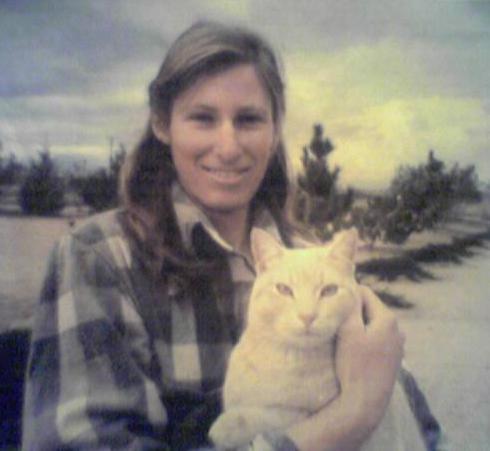Pia’s birthday was last week. I didn’t call her or send a card or bake a cake. Such efforts would have fallen on deaf ears, because she died six years ago in January.
Pia was the older sister I’d never had, and she’d welcomed me into her life with apricots and a warm pot of tea. A magnet on her refrigerator door read “sister-in-laws by chance, friends by choice” and I always thought that it referred to us. We were prone to wonky discussions about drinking water and the fate of the Sacramento-San Joaquin River Delta. She was finishing a PhD in environmental engineering when cancer intruded on her best-laid plans.
On Christmas, 2007, I flew to California to care for her as she lay dying of cancer. She needed so much and the things I could do felt so small—help her out of bed, place slippers on her swollen feet, prepare fresh dressings for her wound and listen when she felt like talking. Inside, she was still the same person I’d always known, but her body was fading into a ghost of her former self. Nothing could prepare me for the devastation of watching someone I love slowly, painfully, disappear. Months of therapy helped me accept that I did the best I could, but I will never feel that I did enough.
After you watch someone’s life slip through your fingers, everything else seems meaningless. As Kathleen Sheeder Bonanno writes in her poem, “Death Barged In,”
He changes everything,
rearranges the furniture,
his hand hovers
by the phone;
he will answer now, he says;
he will be the answer.
After Pia’s death, I came unraveled. I grieved not only for her, but also for myself and my lost state of unknowing. The world was now divided into before and after. Knowing death and not knowing it. People who knew, and those who didn’t.
There’s a scene in the television show Six Feet Under where Claire falls apart at work, unable to cope with her brother’s death. “You’re all doing really important work here,” she calls out to her colleagues as her boyfriend drags her out of the building. Then, as she’s about to leave, she turns to a nameless coworker and shares what’s on her mind. “Everyone you know is gonna die.”
For months after Pia died, I was Claire in that scene. I couldn’t escape my grief; nor did I want to. In the depths of my sorrow, one of my closest friends said that she was sorry I was having such a hard time, but she no longer wanted to be my friend. I’d bared my darkest, most vulnerable self to her and she’d rejected it as unworthy. And so it goes.
Grief is an unbecoming emotion. It’s raw and unvarnished. It exposes truths we’d rather left unsaid. It changes relationships. The people you expect will be there aren’t, and the ones you would never have depended on are the ones who help you find a way through the darkness.
I don’t hold grudges against people for that which they can’t bear. I thought I could handle it. I was wrong. I am not as strong as I want to be. And so it goes.
In the days after Pia died, people told me many cheerful lies. She’s in a better place now. You’re stronger for having gone through this. It was so good of you to be there. Such platitudes offered me no comfort. The truth is, Pia died far too young, and I wish she hadn’t.

I have no words, Christie. You must have been a good friend to her, and a comfort.
Christie, I’m so sorry that you have had to experience death in so many raw forms, as if there is any other kind. I wish I could have helped more, known how to reach out to you. Grief is outward and inward, and the inward parts are hard to fathom and reach, unless a window is left slightly ajar so one can peek in and see what is needed to help. I’m glad you found therapy that helped, but the scar will always be there, impacting how you see the world and move in it. May you live life with joy and vigor despite the scars.
Your “friend” who didn’t want to be your friend was rejecting death and since you were dealing with it, did not want to be around your darkness.
Christie, thank you for fearlessly sharing your grief with us. It makes the post-loss world a little less lonely. Take good care.
This is a very moving post. I will not forget it, and I hope you are doing better now.
Much respect. Being real and honest and raw is not easy. But it’s true. I’m very sorry for your pain and loss.
Not much to say, you left me speechless.
Agree with David, it is a very moving post.
I’m grateful for all the supportive feedback I’ve received here and privately.
Thank you for putting your feelings into words. I can relate. It took 2 1/2 months from when we found out my mother had cancer until she faded away. Another platitude I got was ‘she lived a long life’ (she was 90 when she died). And although I am blessed to have had her so long, it was not nearly long enough.
So sorry for your loss. Someone recommended I read The Grief Recovery Handbook–I’m working through it now. Courage.